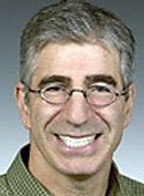OPINION
Revenue, leadership are needed to restore health-care safety net

 By CHARLES MAYER and TERESA MOSQUEDA
By CHARLES MAYER and TERESA MOSQUEDA
Primary-care providers are working harder than ever to partner with their patients, but the question still remains: How can we provide excellent, high-quality health care without the necessary resources? The news coming from Olympia and Washington, D.C., is enough to make us all sick.
Some elected officials seem to view cuts to social services as the only path to deal with our economic woes. Yet we all know deep cuts will only worsen everyone’s health and cost us all more. The better and healthier approach would be to increase revenue — but that will take a great deal more courage.
Some Washington legislators believe that making devastating cuts to social services for low-income people will help manage our financial mess. The pending state cuts to health insurance for low-income adults and children, pregnancy-care services, dental services and prescription coverage will lead us to worsening health conditions, increased emergency room visits and more hospitalizations.
On the federal level, Congress has taken a similarly narrow view of options. The supercommittee was unsuccessful in attempting to reduce the federal deficit. Now Medicaid, Medicare, community prevention programs and the primary care education system may all be cut.
While the supercommittee focused on making cuts, it pledged to maintain the low 15 percent capital-gains tax for the generally well-off while lower-income people pay a higher tax rate. The injustice is striking.
Health-care services can only do so much. People need a good education, decent housing, reliable transportation and jobs to stay healthy. Medical services become costly when they are done to fix chronic complex social problems instead of providing basic preventive and coordinated care as well as timely interventions for acute problems. These are the very services that a robust primary care-based health-care system provides. Cutting prevention, primary care and social services will guarantee more costly problems not deficit reduction.
It is a myth that subsidizing health care leads to a dependency on government and higher health costs: Study after study shows that lack of health insurance leads to higher costs and poorer health outcomes. Our tax money pays for this expensive care by subsidizing our states’ emergency rooms and hospitals. In addition, poorly coordinated care leads to a less healthy workforce.
It is a myth that people who do not have health insurance are lazy and do not deserve health care: The majority of the uninsured and underinsured people come from hardworking households, often with two or more jobs. These are Americans. The uninsured are the very fabric of the American economy; they have jobs but no health insurance.
It is a myth that doctors do not support health-care reform: The overwhelming majority of physicians in this country support health-care reform. Providers understand that our fragmented system needs changing to improve health-care delivery and lower costs. Medical organizations like the American Medical Association, the American Academy of Family Physicians and the American Academy of Pediatrics support the Affordable Care Act, and one study showed 75 percent of physicians supporting significant health-care reform.
When leaders understand the falsehood of these myths, remove the option of devastating cuts to our social network, and courageously agree to increase revenue streams (yes, taxes!), we can begin to improve the health of our population, spend more time with patients, and actually save resources while decreasing our astronomical health-care costs.
We ask our legislators to do the right thing and commit to increasing revenue. It does not change the daily reality that primary-care clinicians need to provide equitable, high-quality health care to our patients. We are doing our best given the circumstances. To be truly successful, we need our legislators to show leadership and make difficult decisions that will affect the most powerful, rather than increase the suffering of our most vulnerable. It is time to be brave.
Charles Mayer is a primary-care physician and president of King County Academy of Family Physicians. Teresa Mosqueda is chairwoman of Healthy Washington Coalition, the state’s largest health-care advocacy coalition. This opinion column originally appeared in the Seattle Times and is posted here with the authors’ permission.





